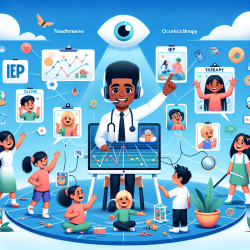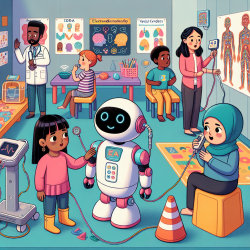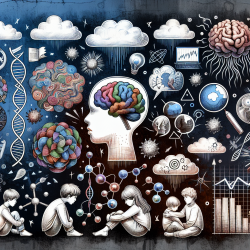Introduction
As a Special Education Director, it is crucial to stay informed about the latest research that can impact educational strategies and student outcomes. One such study, "Missing compared to what? Revisiting heritability, genes and culture," explores the intricate relationship between genetic and cultural influences on human phenotypes. This blog aims to provide insights into how practitioners can utilize these findings to enhance their skills and improve educational practices.
The Complexity of Heritability
The research article highlights the complexities involved in understanding heritability. Traditional models often emphasize genetic contributions to human phenotypes, including behavioral traits. However, the study reveals that incorporating cultural inheritance into these models can significantly reduce estimates of genetic contributions. This shift in understanding is vital for practitioners who work with diverse student populations.
Implications for Special Education Practitioners
For practitioners in special education, recognizing the role of cultural transmission is essential. Here are some ways to implement the research findings:
- Holistic Assessment: Consider both genetic and cultural factors when assessing students. Acknowledge that cultural background can influence learning and behavior, and tailor assessments to reflect this complexity.
- Inclusive Educational Strategies: Develop strategies that incorporate cultural context. This approach can help address the diverse needs of students and foster a more inclusive learning environment.
- Collaboration with Families: Engage with families to understand cultural influences on students. This collaboration can provide valuable insights into students' learning processes and help create supportive educational plans.
- Professional Development: Encourage further research and professional development opportunities focused on the interplay between genetics and culture. Staying informed about the latest findings can enhance practitioners' ability to support students effectively.
Encouraging Further Research
The study underscores the importance of continued research in the field of heritability and cultural transmission. Practitioners are encouraged to explore additional studies and participate in conferences and webinars to deepen their understanding. By doing so, they can stay at the forefront of educational innovation and provide the best possible support for students.
Conclusion
Understanding the nuances of heritability and cultural transmission is crucial for practitioners in special education. By integrating these insights into educational practices, practitioners can create more effective and inclusive learning environments. To read the original research paper, please follow this link: Missing compared to what? Revisiting heritability, genes and culture.










